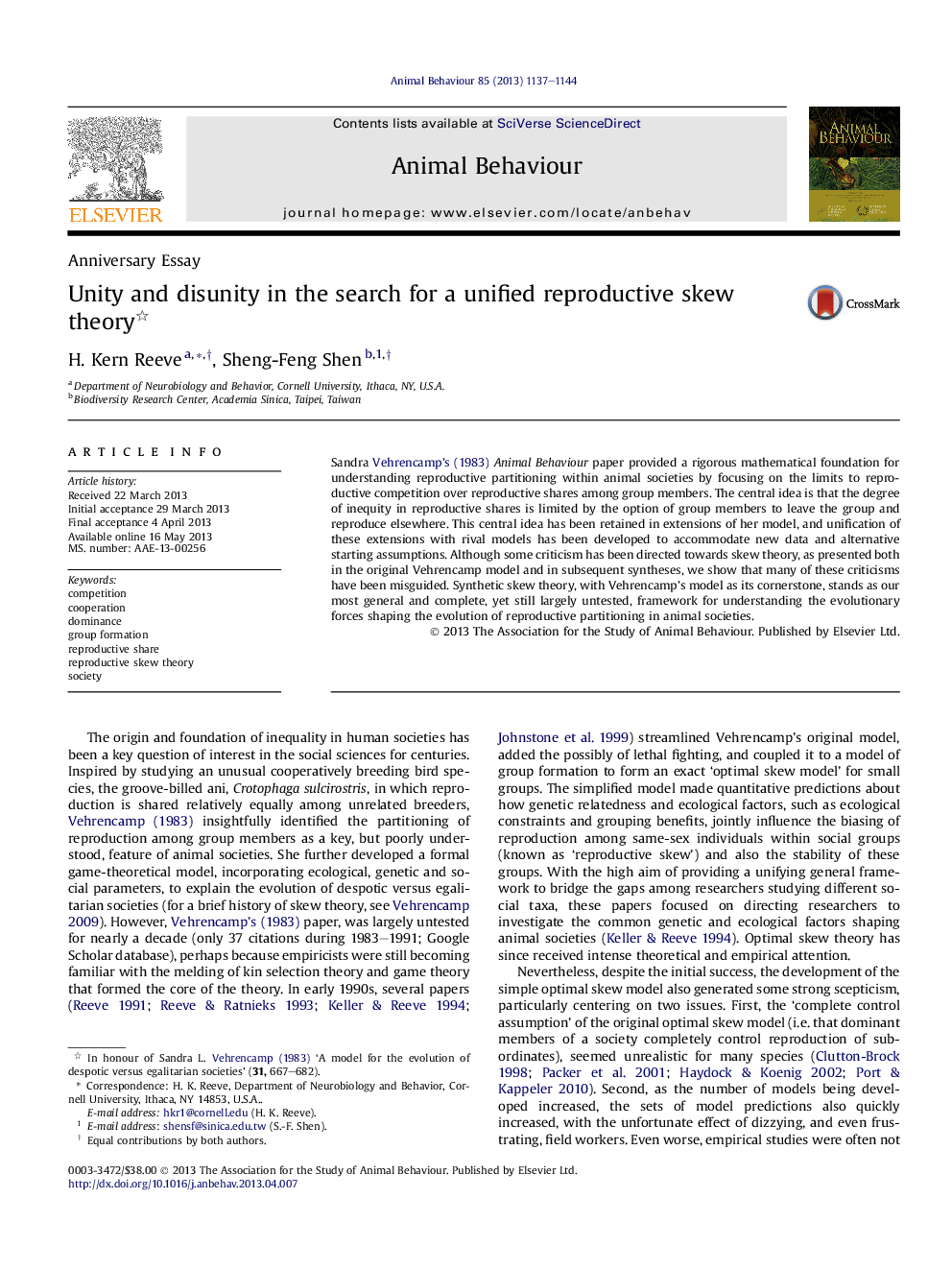| Article ID | Journal | Published Year | Pages | File Type |
|---|---|---|---|---|
| 10970717 | Animal Behaviour | 2013 | 8 Pages |
Abstract
Sandra Vehrencamp's (1983)Animal Behaviour paper provided a rigorous mathematical foundation for understanding reproductive partitioning within animal societies by focusing on the limits to reproductive competition over reproductive shares among group members. The central idea is that the degree of inequity in reproductive shares is limited by the option of group members to leave the group and reproduce elsewhere. This central idea has been retained in extensions of her model, and unification of these extensions with rival models has been developed to accommodate new data and alternative starting assumptions. Although some criticism has been directed towards skew theory, as presented both in the original Vehrencamp model and in subsequent syntheses, we show that many of these criticisms have been misguided. Synthetic skew theory, with Vehrencamp's model as its cornerstone, stands as our most general and complete, yet still largely untested, framework for understanding the evolutionary forces shaping the evolution of reproductive partitioning in animal societies.
Related Topics
Life Sciences
Agricultural and Biological Sciences
Animal Science and Zoology
Authors
H. Kern Reeve, Sheng-Feng Shen,
